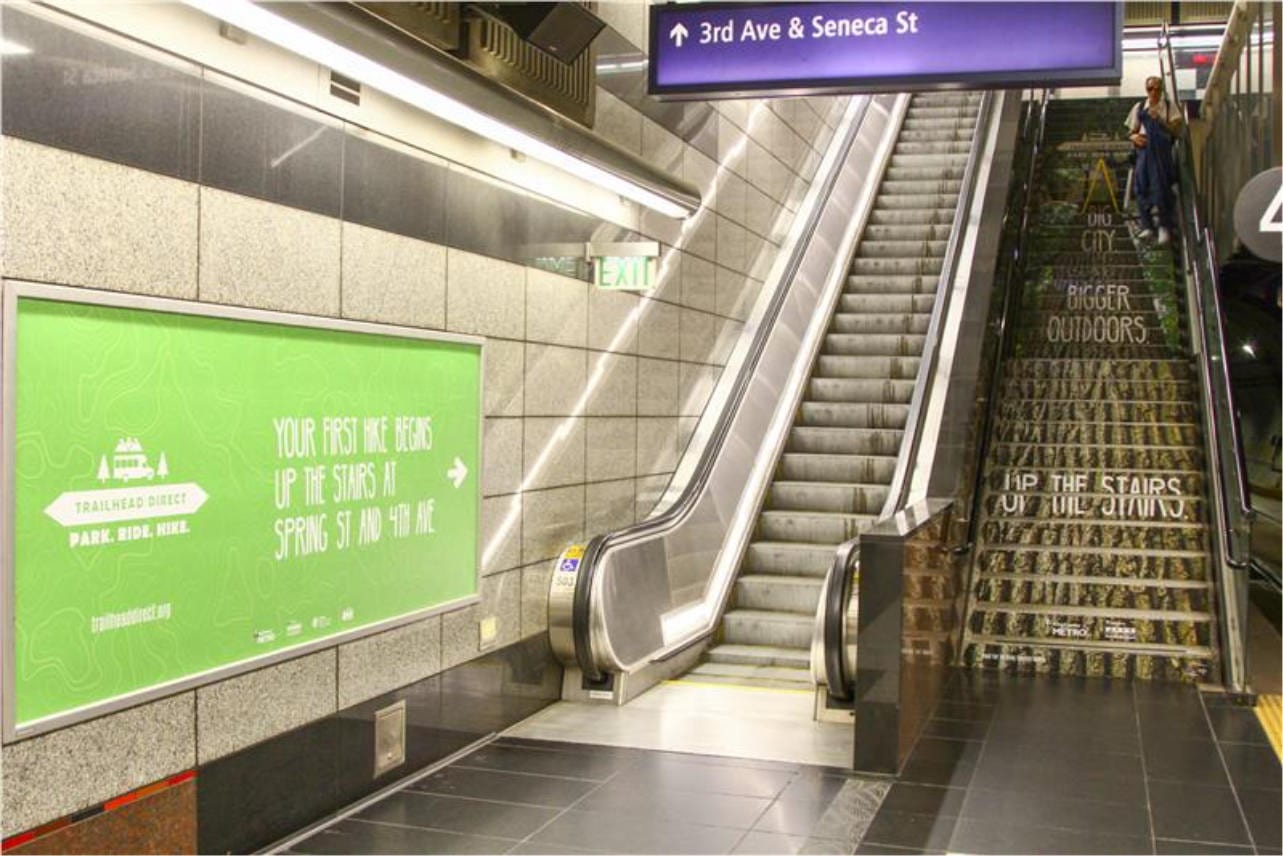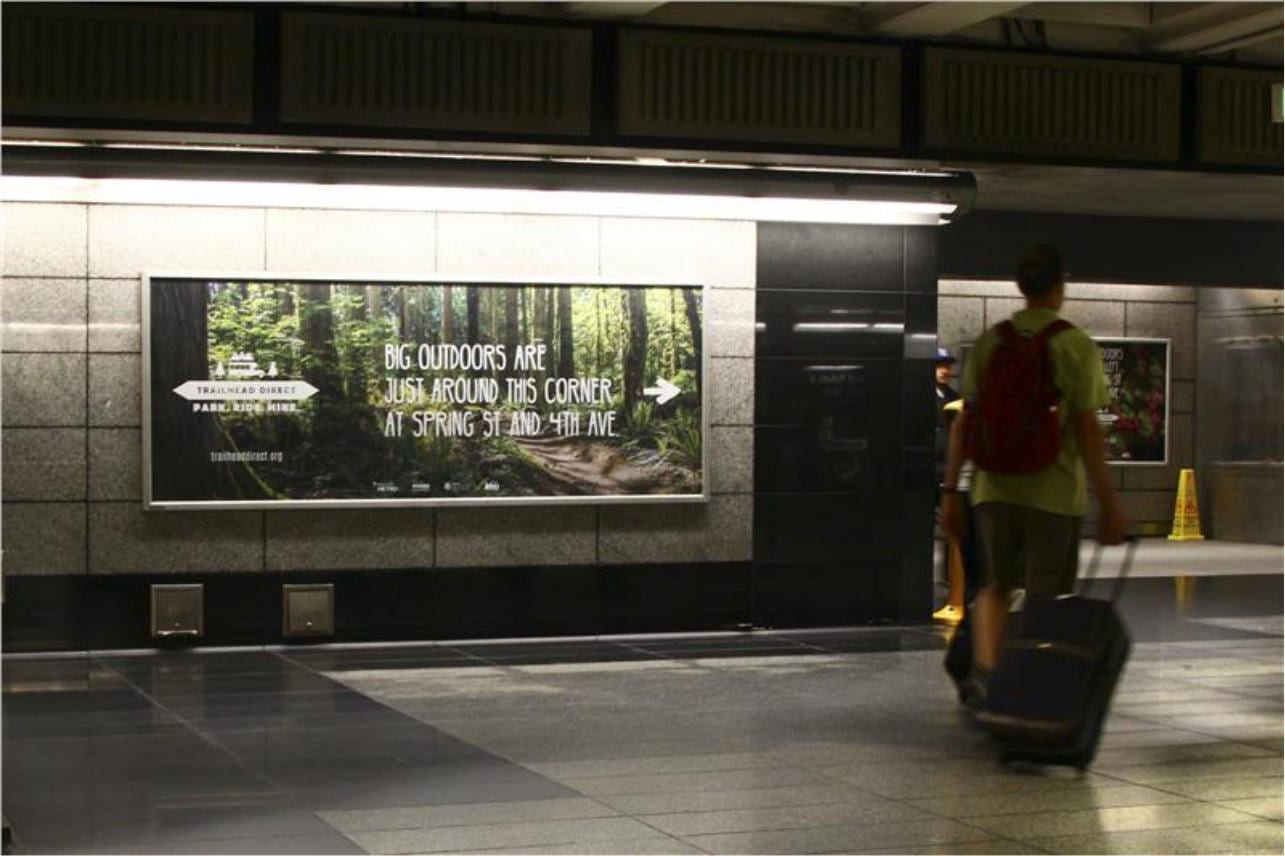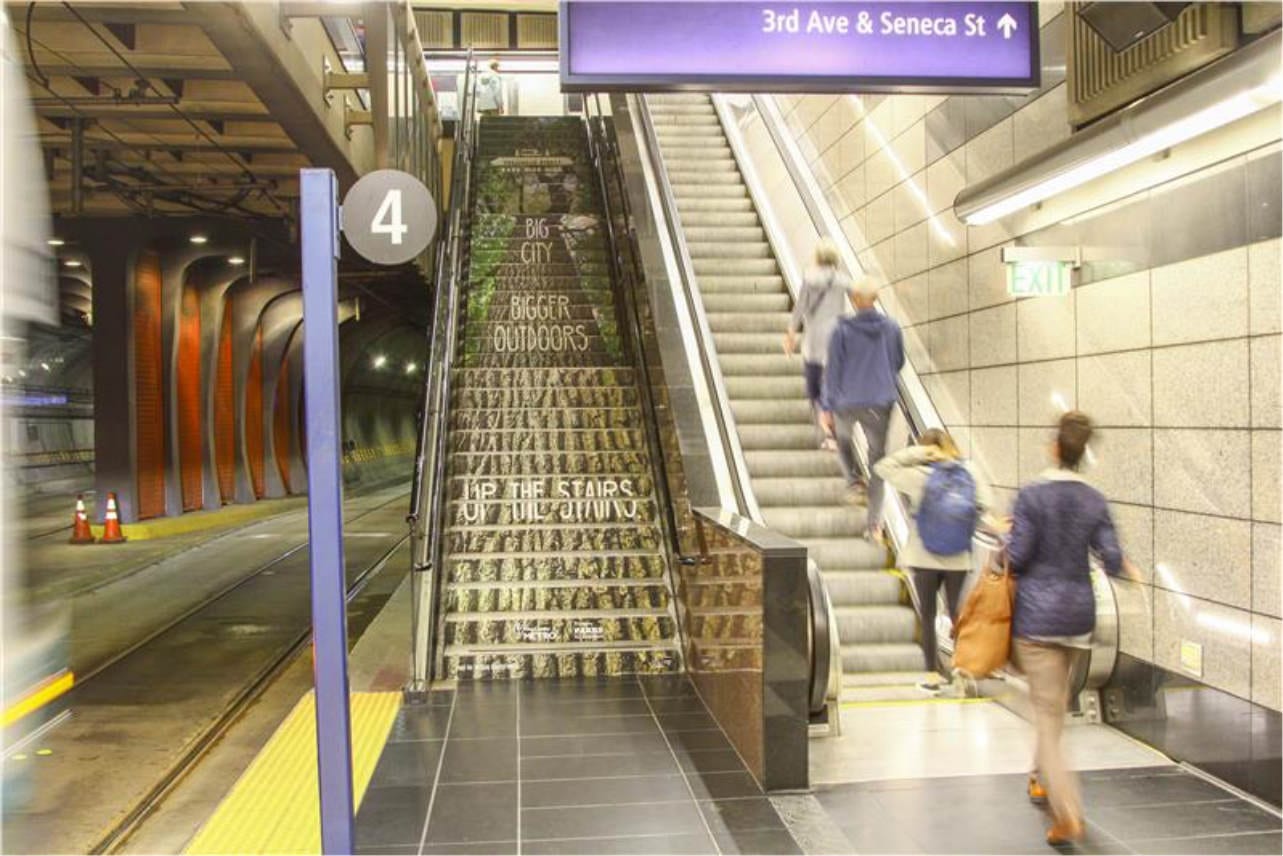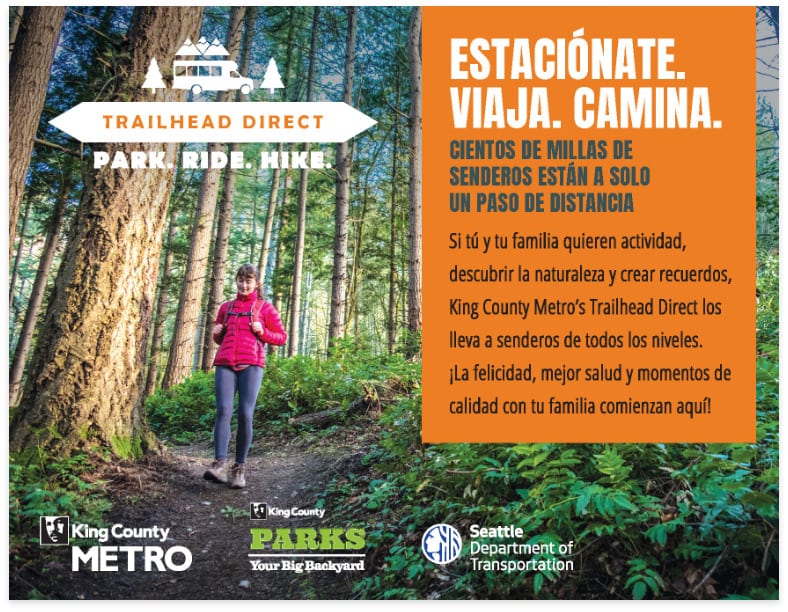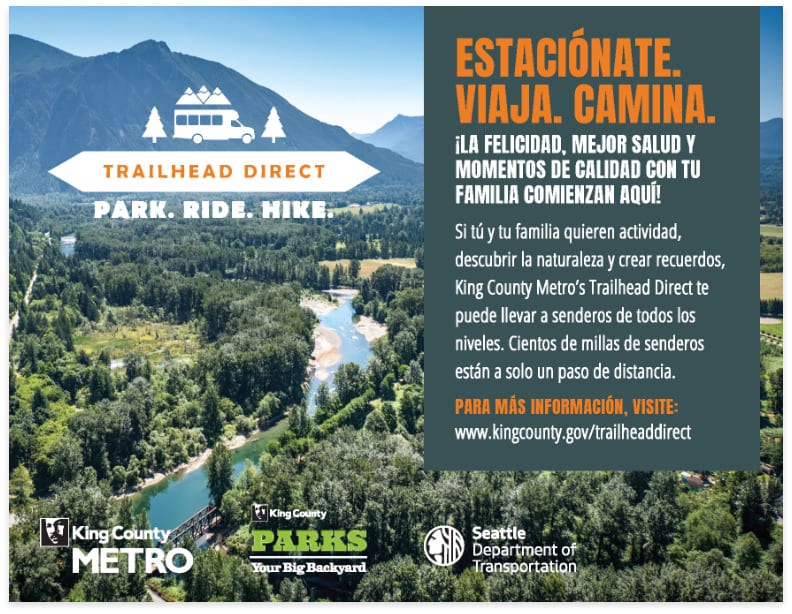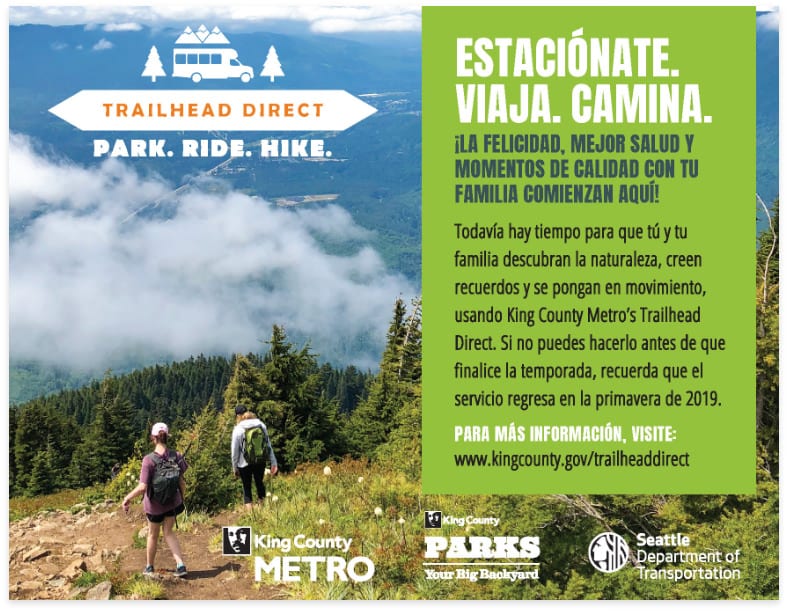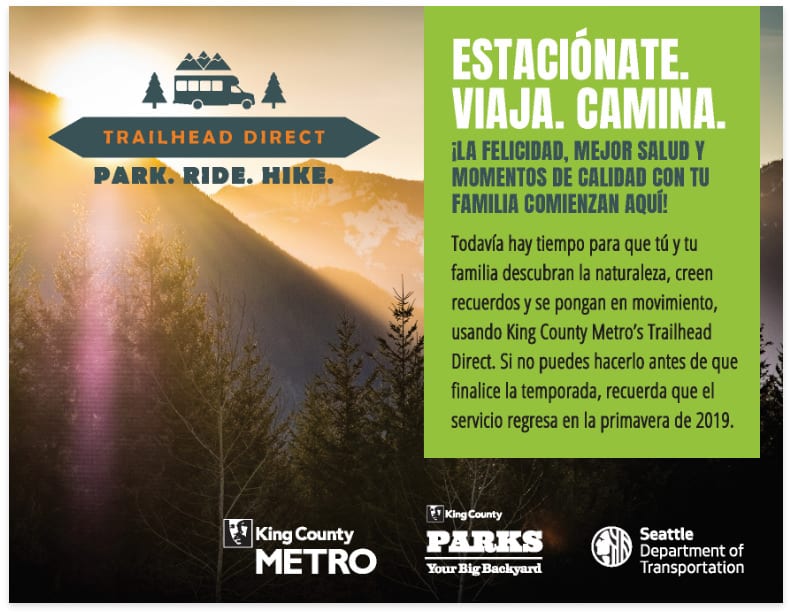Next stop: The great outdoors
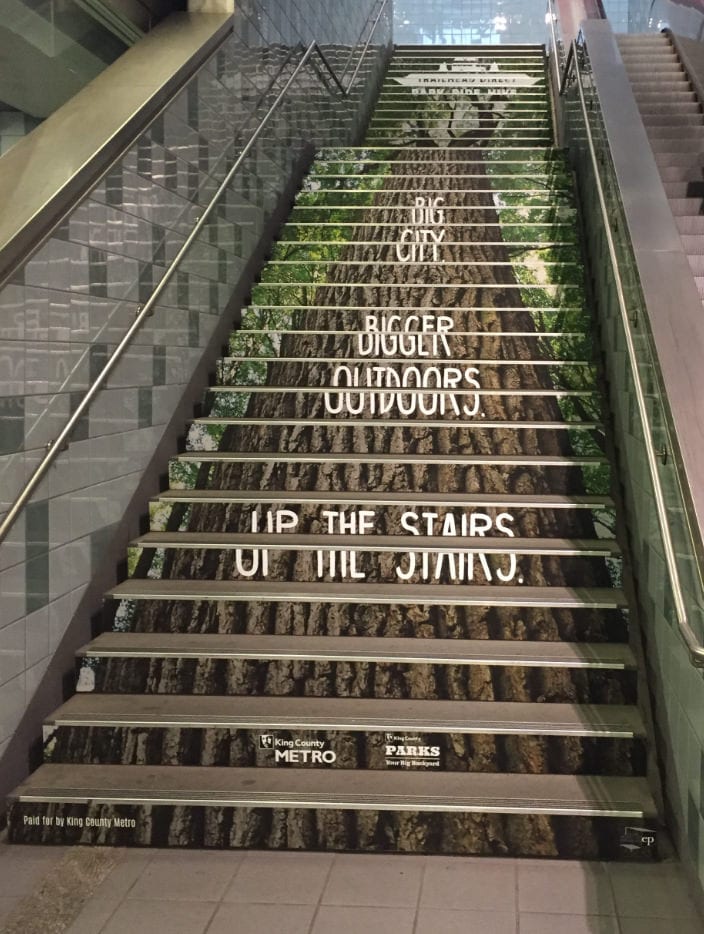

The challenge
Residents of the Pacific Northwest love the outdoors, but access is easier for some communities than for others. Traveling to and parking at trailheads can often be challenging as popular destinations are swarmed with cars. Adventure gear can be expensive. The outdoor industry has historically been marketed as white, with a slant toward male. Sometimes interurban audiences, especially minority audiences, get left behind.
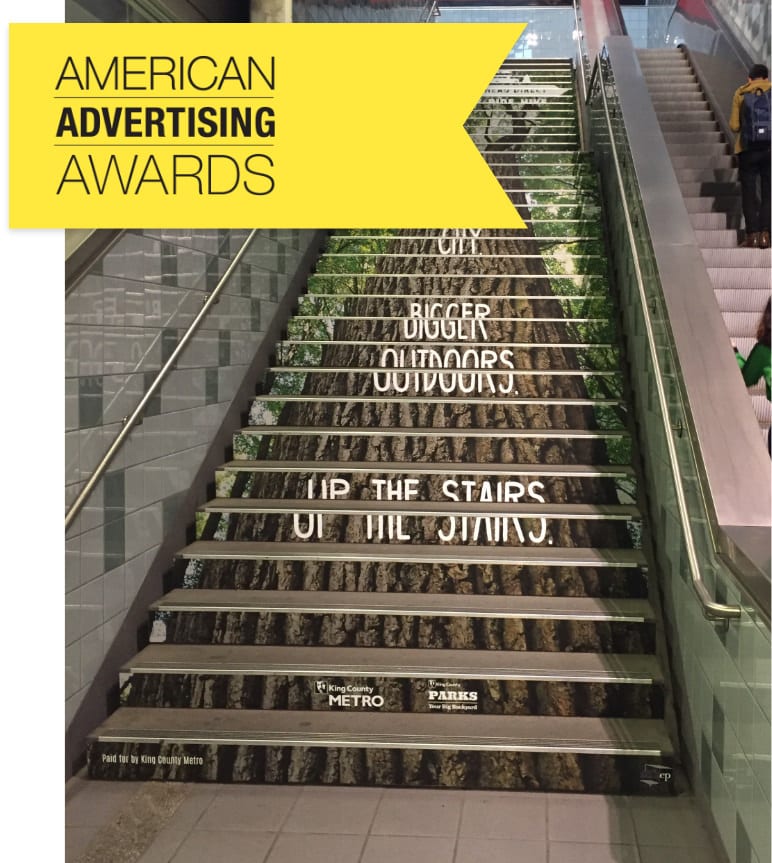
Marketing included transit-station takeovers in Seattle, along with environmental signage at SeaTac International Airport.
The strategy
We started where we always do: with research. We analyzed target audiences including low-income and ethnic populations, looked at trends, and became with familiar Washington hiking trails. Next, we developed a set of strategies and tactics to reach each audience group. Our approach used social marketing strategies to change behavior around accessing trailheads.
What we did
Our campaign hypertargeted various communities with messaging and tactics that spoke to people’s various motivations for getting outside. One of our focus demographics was Hispanic and Latinx audience, whom we decided to reach with creative that focused on the benefits of low-key social and family time on trails and in the parks rather than on the rigors of a hike to the top of Mailbox Peak (which would appeal more to experienced hikers). Additionally, the campaign emphasized transcreation over translation and employed bilingual pieces to appeal to bicultural families.
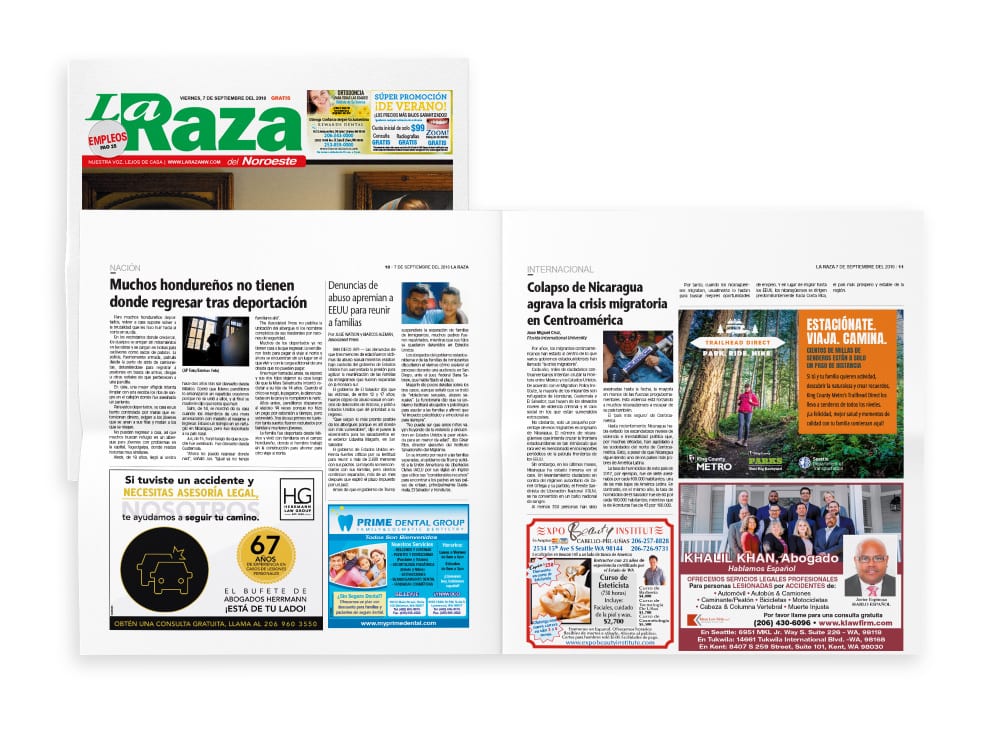
Ads ran in Spanish-language publications.
Results
The campaign increased access and Trailhead Direct ridership, while also reducing traffic and environmental degradation at trailheads. It raised awareness with the target Hispanic-Latinx audience and resulted in media coverage in La Raza Del Noreste and on Hispanic radio. With a focus on targeted social marketing, King County Metro and King County Parks were able to reach special audiences in culturally appropriate and meaningful ways.

